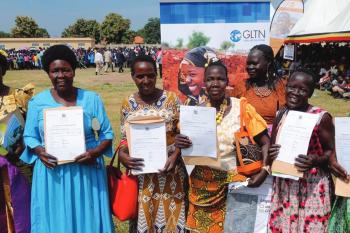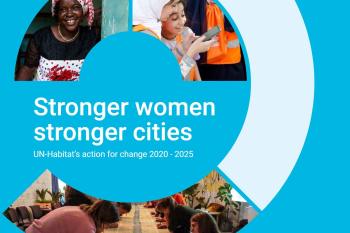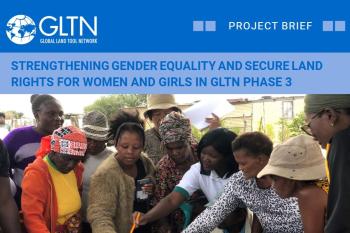
Read More
Gender Strategy for Land-at-Scale Uganda
Women’s Land Rights (WLRs) are fundamental human rights, foundational to gender equality and women’s dignity and instrumental in improving food security, effective climate action, poverty eradicati

The study provides the background and objectives of the Athens workshop, then provides separate in-depth background and analysis of the informal development solutions being adopted in Albania and Greece. Following a review of just how ‘pro-poor’ the solutions are, the final chapter provides a series of lessons learned, many of which can be applied to other countries experiencing informal development issues.
Valuable experience with informal development, its impact on the economy and the environment, and the means to deal with it in terms of legalization, demolition, applied spatial and urban planning regulations, building permits, and the interrelationship of land-use regulations and records and property registration systems, can be derived from this in-depth study about Albania and Greece.
This study will encourage people to take up the challenge of informal development, by learning from Albania and Greece and how they have worked to solve their informal settlements.

Women’s Land Rights (WLRs) are fundamental human rights, foundational to gender equality and women’s dignity and instrumental in improving food security, effective climate action, poverty eradicati

This publication presents a summary of UN-Habitat’s gender equality impact over the past five years, in line with the Beijing reporting cycle.

GLTN’s institutional commitment to gender equality and secure land rights for women and girls has been at the core of its work since inception in 2006.